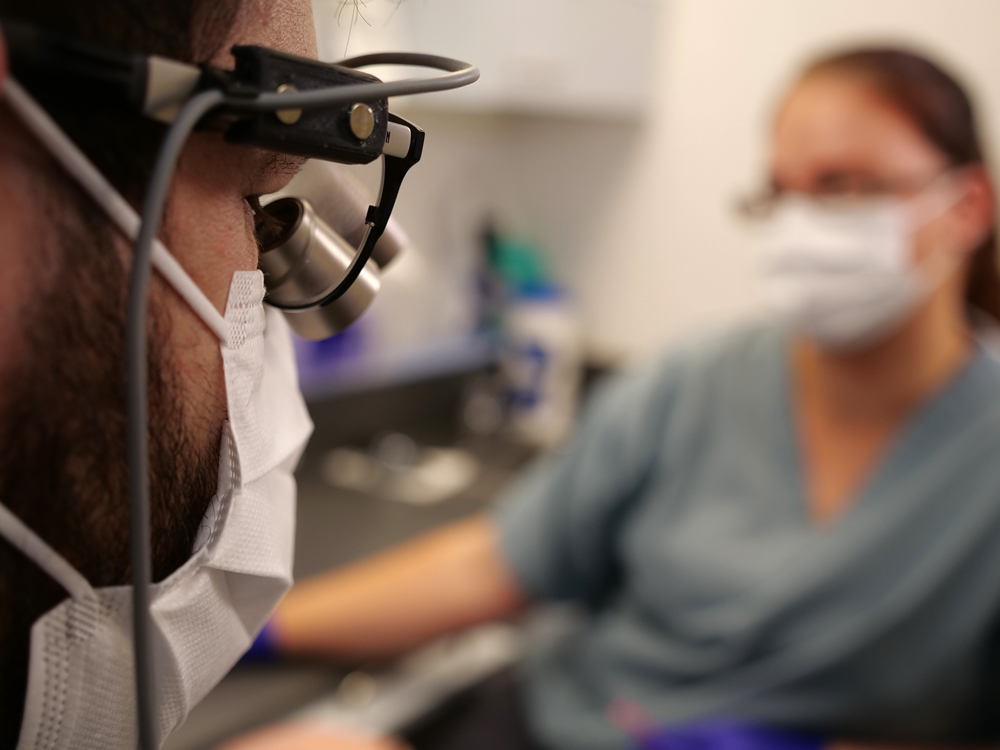Crowns

What are dental crowns?
Crowns are caps placed on top of damaged teeth in order to strengthen the underlying tooth. They are used to protect, restore the shape, and improve the appearance of your teeth. They will often be used over a root-filled tooth to give protection to a tooth which will be more brittle. Dental crowns have been used as a dental procedure for many years and can be made out of many different materials from gold to beautiful and natural looking modern ceramics. They are cemented to the underlying tooth and typically don’t require any special care other than regular good oral hygiene. These restorations can be used on front teeth or the molar teeth.
Why are crowns needed?
Crown are used for several reasons, including:
- To strengthen a weak tooth to prevent further breakdown especially if there are any cracks or fractures present, especially with people with clenching and grinding habits.
- To restore a broken or worn-down tooth replacing tooth structure to the size and shape that it should be.
- Cover and improve the appearance of misshapen or discoloured teeth.
- Strengthen a tooth that has been root filled.
- Above a dental implant.
- To hold a dental bridge in place.
- Strengthen a tooth which has a very large filling or cavities, and little tooth remaining.
What are dental crowns made of?
Traditionally gold was used for crowns and studies show us that they can last longer than many other materials. Gold is still used today, but more often for back teeth if patients are happy with the appearance.
Bonded crowns: these are ceramic material which is fused or bonded to a strong metal. The ceramic is matched to your adjacent teeth but often they can seem dark at the gum line where the metal can show-through.
Ceramic/porcelain: these types of crowns have the best aesthetics with a very natural appearance. Porcelain crowns have been used for many years and now with modern technology and materials crowns can be made to blend in with your natural teeth and it’s often difficult to see which one is false! Cosmetic dentistry at its best!
Composite resin/acrylic: These are normally used as temporary crowns while the laboratory is making your new crown. They can sometimes be used to assess the appearance before committing to the laboratory made crown.
Zirconia: This is a relatively new material and being very strong it can be used for crowns on back teeth. Its downside is that it is quite opaque and so the appearance is less natural than other materials.
How are crowns made?
Traditional types of crowns are made in the dental laboratory and require two visits to the Practice. At the first visit your dentist will shape the tooth and take impressions with a putty type material and place a temporary crown. This is normally undertaken with a local anaesthetic. At the second visit the temporary crown is removed, and the new crown is cemented.
Now, some newer ceramic materials can be made in one visit using digital techniques. After preparing the tooth instead of taking impressions a 3D scanner is used to scan the tooth into a computer and then the software will design the new crown. This is made immediately and will in most cases be ready to cement in less than 20 minutes! One Visit Crowns are a great advance in dental technology and are a big time saving for our patients.
How long do crowns last?
Studies show that on average crowns will last 12 to 15 years. However, if your oral hygiene is good, you can expect them to last longer. Crowns normally fail if there is further decay of the tooth or more gum disease and both of these factors are determined by diet and oral hygiene.
What are the downsides of crowns?
A crown is an irreversible process as tooth has to be removed to create space for the new crown. This is important to remember when considering treatment, especially if alternative less destructive options are available. Potentially, any drilling or tooth removal can cause inflammation of the tooth nerve and could lead to nerve death and an abscess may form. This could need a root treatment or even tooth extraction and as a consequence we will always try to recommend treatments involving the minimum of tooth preparation.
Some crown materials can be quite abrasive and could lead to excessive wear of the opposing teeth, so it is essential that this is assessed carefully before choosing the material to be used.

